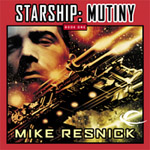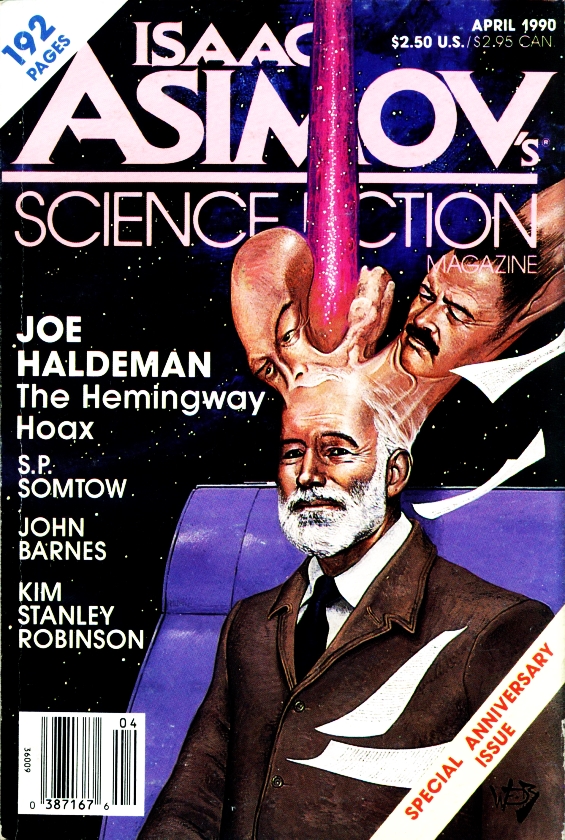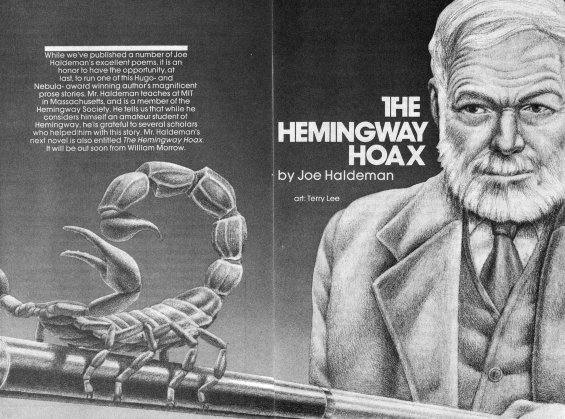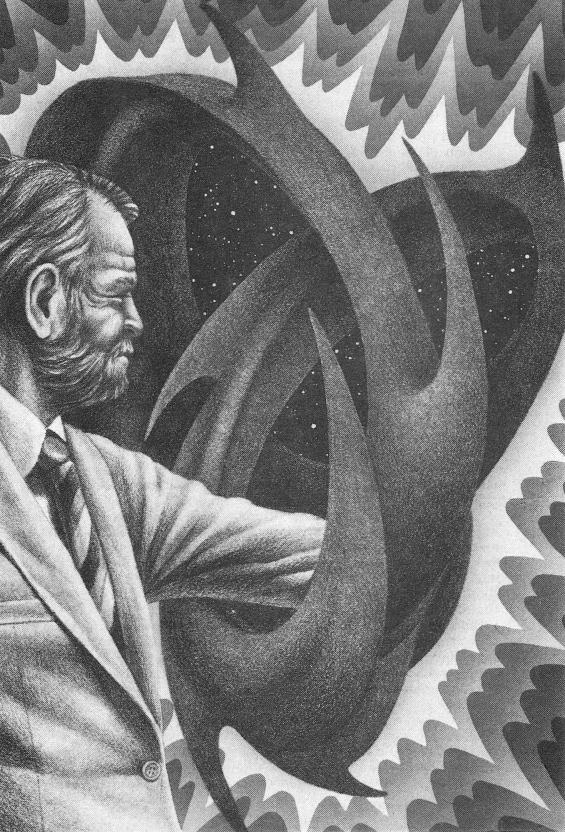
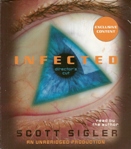 Infected
Infected
By Scott Sigler; Read by Scott Sigler
9 CDs – 12 hours – [UNABRIDGED]
Publisher: Random House Audio
Published: 2008
ISBN: 9780739328859
Themes: / Horror / Science Fiction / Mystery / Bio Chemical / Self Mutilation / Scott Sigler / Podcast
Maybe you’ve been away on vacation. Maybe you’re new here. Maybe you fell asleep 100 years ago and you’re just waking up. Maybe you’ve been locked inside your house with a pair of chicken scissors. Who knows? But, if you are a fan of audiobooks and audio fiction and DON’T know about Scott Sigler, you’ve been missing out.
So, for those of you who don’t know who Scott Sigler is, he started out as a rogue novelist that decided to record his own novels and distribute them for free, over the internet, as podcasts, to build an audience for his writing. And my, oh my how it has worked! Who would have ever thought that you could make money, or at least get yourself a big time publishing deal with a major company just by giving your stuff away for free? For those of you who, like me, have been following his rise, you’ll be happy to hear that our little Scott Sigler is all grown up now. He’s out of diapers and he’s using his “big boy” voice.
The basic premise of Infected is this: Some strange virus, disease, or biological weapon is turning normal people in to stark raving lunatics. This mysterious disease, whatever it is, causes its victim to become paranoid, psychotic, and just a little more than grumpy. There’s suspense, gore, disturbing self mutilation and of course, lots and lots of violence. But, as you may well know, adult themes and disturbing images only work if they are used to serve as a backdrop to great writing. Infected is most certainly well written and that’s why it is a good listening experience from beginning to end.
CIA operative Dew Phillips is burdened with the task of figuring out what this thing is and why it causes such behavior from its victims. Even with the help of CDC Epidemiologist Margaret Montoya, he does not know much about the disease. Because of its nature, all infected victims have been found dead. The investigation takes them from city to city, hoping to catch a live host.
Then there’s our “host” Perry Dawsey. He’s a gigantic former college football player, with a slight twinge towards problems of an anger management nature. He doesn’t know it yet, but he’s about to take you on a wonderful ride of beautifully written “gross”. Perry is a man who has struggled for years to control his anger and you begin to feel for him as you witness his downward spiral in to violence. You may find yourself fighting for Perry the perfectly crafted underdog. Normally you wouldn’t consider such a hugely athletic man as an “underdog”. But, in Infected, his strength is literally his weakness.
I first heard Infected in its original form as a free audio podcast. When I sat down to listen to this professionally produced and released unabridged recording, I thought I was about to take a trip in to a wonderfully relaxing nostalgia. But, I was wrong. From the first page, the book has been completely re-worked, tightened, tweaked, improved upon, and added to. Infected is as fit as a boxer getting ready to fight for the title belt and every page, chapter, and verse has a polished feel that resonates with the listener. There is also new material, previously unreleased, including twenty-two pages that you won’t even find in hardcover book.
For fans of Sigler’s podcast, you will be happy to hear that he narrated the entire book himself. It comes complete with elements that you don’t normally find in a big budget release, such as voices and a mild amount of sound effects that help the recording spring to life. Yet the entire thing feels like his podcast. I kept expecting him to come in and say, “That’s all the story I’ve got for you this week…” but he never did. Not until the end, almost twelve gruesome hours later.
The sound quality is very good. There are no flubs, exterior sounds, or flaws. It not only sounds good, but Scott Sigler has actually never sounded better. That’s a lot to be said for someone who jokingly claims to have been doing this perfectly for over eighteen years now.
I realized when I first pressed “play” on this audiobook that I had never actually listened to anything written by Scott Sigler in one extended sitting. I had been consuming his fiction, just like every other person out there, one week at a time, for just a few minutes at a time. I am happy to report that he is not like one of those annoying friends that you enjoy only in small doses. I started listening to Infected, and even though I already had a good idea of what the story and characters were going to be, I just kept listening all the way through to the end. The writing is solid and the plot twists and character arcs are all perfectly juxtaposed. You can never relax or let your guard down because there is something even worse coming to get you from just around the corner.
So, if you’re in to a little romantic comedy where all is well at the end and everyone loves each other, Infected is not for you. But, if you are looking for something that is page burningly well written with great characters, violence gore, a dash of self mutilation and some chicken scissors thrown in for good measure, definitely give Infected a shot. I’m sure Scott Sigler would thank you personally, but he’s locked in his closet right now recording his next great hit, which he is still giving away for free, every week. Well, almost every week. It isn’t exactly clockwork.
Posted by Michael Bekemeyer of the Scatterpod podcast.

 The Communion of the Saint
The Communion of the Saint